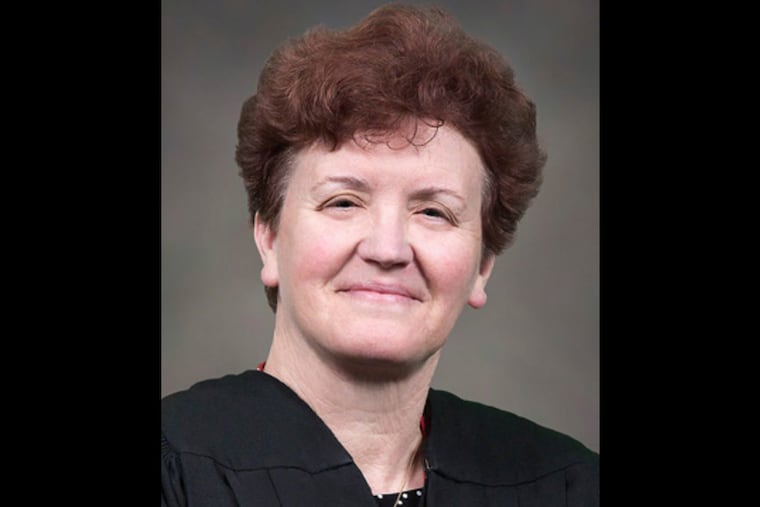A Philly judge has denied every inmate’s bid to get out of jail amid the coronavirus. Defense lawyers are trying to cut her out of the process.
In an email obtained by The Inquirer, Chief Defender Keir Bradford-Grey said that after two days of hearings before Common Pleas Court Judge Anne Marie Coyle, the Defender Association no longer believed it was in its clients’ best interest to bring cases before her.

As Philadelphia’s courts continue to hold emergency hearings to reduce the jail population amid a coronavirus outbreak behind bars, one judge has rejected every request for inmate release — and has even increased the bail for four.
That record over two days prompted the Defender Association to inform the courts Tuesday evening that it intended to withdraw all cases before Common Pleas Court Judge Anne Marie Coyle, saying it no longer believed it was in its clients’ best interest to argue their cases in front of her.
In an email sent to the leadership of the First Judicial District and obtained by The Inquirer, Chief Defender Keir Bradford-Grey wrote that as Coyle increased some detainees’ bail during hearings ostensibly designed to expedite their possible release, the judge told attorneys in her virtual courtroom “that they should be careful what [they] wish for."
“We are compelled reach the unfortunate conclusion that Judge Coyle does not share the understanding reached by all of the stakeholders involved in this extraordinary circumstance," Bradford-Grey wrote.
This is the latest sign of discord among the city’s judiciary, defense lawyers, and the District Attorney’s Office, who have publicly bickered for weeks about how to best to respond to a virus that is spreading behind bars five times faster than the rest of the city.
The decision also created some uncertainty in a process that, through Tuesday, had led to roughly 380 inmates securing an early release during five days of emergency hearings that began last week.
The judges have agreed to review the cases of scores of potentially releasable inmates from lists compiled by the District Attorney’s Office and the Defender Association in an effort to reduce the population of the county’s jails, which public health advocates have been warning for weeks could turn into a breeding ground for transmission of the coronavirus.
On Tuesday, city officials announced the first inmate death related to the coronavirus in the jails and said 54 more were infected with the disease.
Under the agreement struck by judges, prosecutors, and public defenders this month, candidates for potential release include nonviolent offenders who had already completed their minimum sentences and those being held on cash bail or low-level charges like drug possession, prostitution, and theft.
“The court’s leadership acknowledges the Defender’s ability to withdraw any petition it chooses," said Gabe Roberts, a spokesperson for the First Judicial District. “The courts remain open, ready and willing to decide any motion legally presented for adjudication.”
District Attorney Larry Krasner said he understood Bradford-Grey’s position, given the effort parties have put into finding candidates worthy of possible release from jail.
“There’s not much point in doing all that work and then having every single case rejected,” he said.
The episode is not the first time Coyle has been embroiled in controversy.
An Inquirer analysis published last year found that Coyle sentenced people who had violated probation to state prison at a higher rate than any other judge in Philadelphia. Coyle said at the time that that could have been the result of overseeing serious cases in a major trials courtroom.
In February, Superior Court overturned a seven-year prison sentence Coyle imposed on a man who had violated probation, saying “a reasonable observer could question whether the judge comported herself in an unbiased and impartial manner," and citing in part her “animus against the District Attorney’s Office.”
And two years earlier, Coyle confronted the District Attorney’s Office in highly unusual fashion by removing an assistant district attorney from a probation violation hearing, and unilaterally naming a defense lawyer in the room a “special prosecutor." That case is waiting to be heard by the Supreme Court.
Ronald Greenblatt, a member of the private defense bar who has been involved in negotiations over the development of the emergency hearing process, said that even given Coyle’s history, he found her decisions this week “shocking.”
“It really makes you wonder why Judge Coyle was selected for this role,” he said.